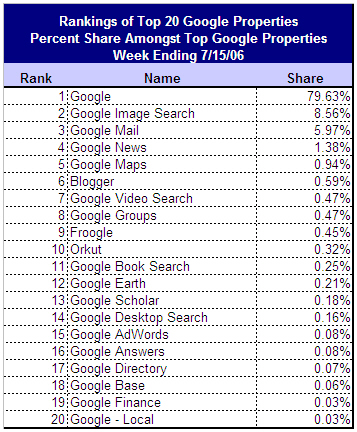Google and the drag effect

The recent Hitwise numbers on Google show the same trend as in past months--search rules and the rest of the properties come along for the ride in the back seat. You would think that search, as well as an increasingly integrated set of communications services, would create more of a drag effect, upping the usage of other Google properties and drawing users away from competitors sites, but that doesn't seem to be the case. However, given the volume of searches, even a small percentage for Google Maps (almost 1 percent) can be a big number compared to competitors with equivalent service.
Many of Google's properties don't enjoy a drag effect because users don't find them good enough. You can easily split your brand loyalty today without much inconvenience. What's remarkable, according to Hitwise, is that Google's market share of visits in the U.S. for its combined top properties increased over 26 percent year over year to 4.24 percent. Google is now a verb and search is predominant Web click, but it's still early in the game...
